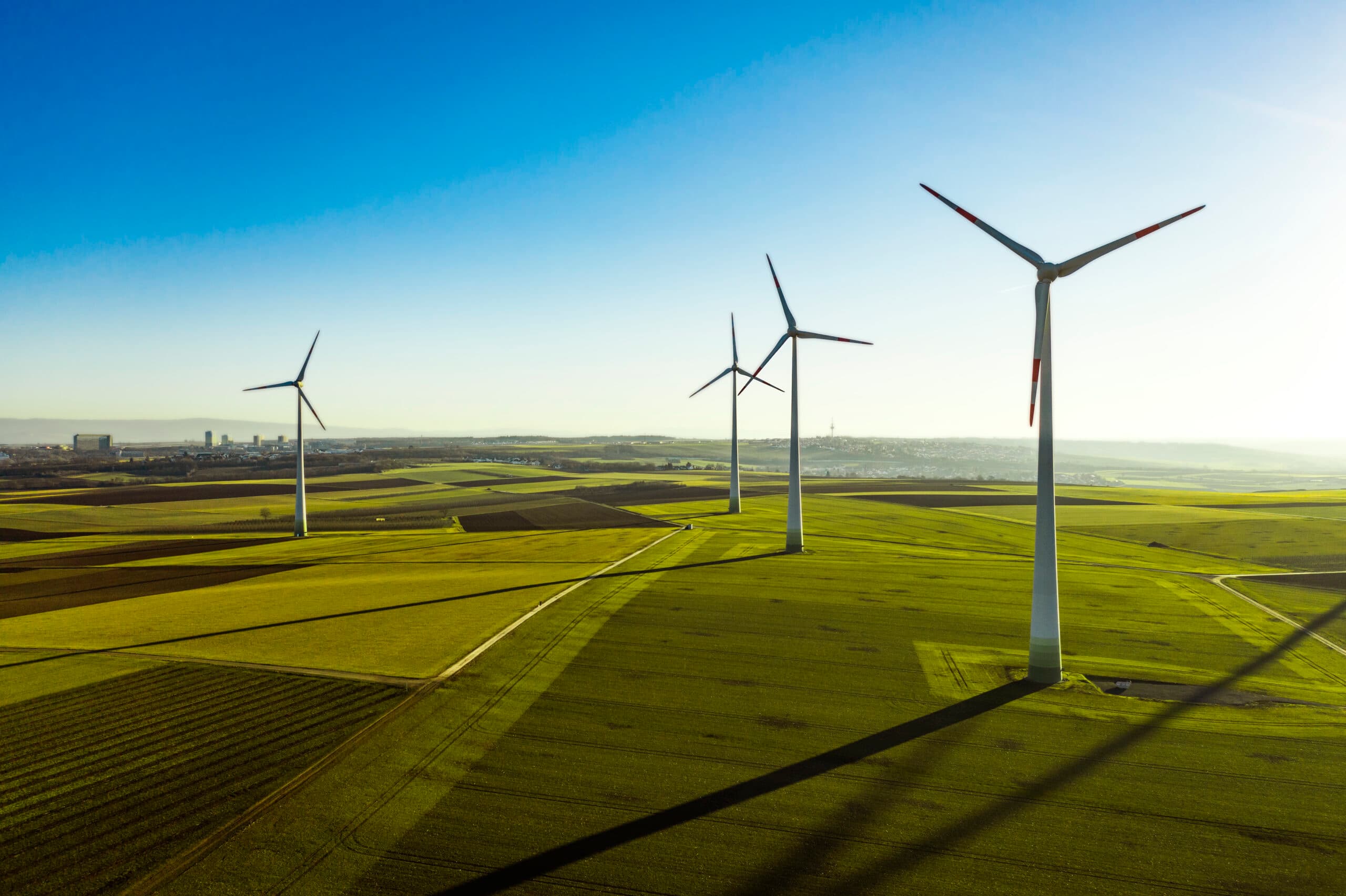The Role of Renewable PPAs in Mitigating Price Volatility

More and more companies are opting for renewable energy power purchase agreements (PPAs) to secure stable, long-term, competitive prices and reduce their carbon footprint.
As a basic input for the functioning of all industries—goods and services— energy is primarily sourced through distributors, and marketers, and is even acquired in the conventional electricity grid. This system, variously termed the spot market, daily market, or marginal market, establishes prices based on the cost of the final power plant to generate energy each day.
Normally all companies, to a greater or lesser extent, are exposed to the electrical system, and such exposure can present significant risks due to its volatility. Although at the moment prices in Latin America and the Iberian Peninsula remain moderate, primarily due to the relative stability in international fuel prices. However, this situation stands in stark contrast to the landscape of recent years, when the conflict in Eastern Europe triggered a substantial increase in international natural gas prices.
Local contingencies, including climatic, operational, and financial events further exacerbate market volatility. Extreme weather phenomena—hurricanes, heatwaves, and droughts—occurring with increasing frequency due to climate change, can disrupt energy production and compromise infrastructure integrity. These disruptions directly impact the energy resource supply, causing price surges due to temporary scarcity. For instance, the El Niño-induced drought in Colombia resulted in an average energy price of COP$988.59 (~USD 0.256) per kWh this April, a fourfold increase from the COP $231.53 (~USD 0.06) per kWh observed in 2023.
Operational failures in marginal markets, stemming from technical malfunctions in power plants or supply chain interruptions, can lead to significant production fluctuations, impacting the ability to meet demand and driving prices upward.
The resilience of the supply chain is further compromised by climate change, as suppliers in disaster-prone regions face mounting challenges in providing essential components for energy generation. An example of this occurred in 2021 when a severe winter storm in Texas dramatically reduced natural gas exports to Mexico, affecting power generation in gas-dependent plants. This resulted in widespread power outages and substantial electricity price hikes in the marginal market due to supply constraints and heightened demand during the crisis. According to the Federal Electricity Commission (CFE), natural gas prices surged by an unprecedented 5,000%, escalating from USD 3 per volume unit to over USD 200.
Mitigating Risks to Maintain Competitiveness
Exposure to energy price volatility can significantly impact operational costs and erode competitive advantage.
To mitigate these risks and maintain market position, many corporations are executing renewable energy Power Purchase Agreements (PPAs). These strategic contracts offer price stability, long-term cost predictability, and economic efficiency while simultaneously reducing carbon footprints, aligning with both financial and sustainability objectives.
Industry data demonstrates a deepening corporate commitment to clean energy procurement, with this trend gaining momentum across diverse sectors. A comprehensive KPMG survey of companies in Spain revealed a notable shift: in 2019, 21% of companies sourced 81%-100% of their energy through such agreements, with this proportion expanding to 24% by 2022. Corroborating this trend, a Pexapark report indicates that 16.2 GW of renewable PPAs were executed in Europe in 2023, marking a substantial 40% year-over-year increase. Spain emerged as the frontrunner with 4.67 GW, while Portugal secured the tenth position with 0.42 GW.
This phenomenon is not only European and is manifesting globally, with particular traction in the Americas. A BloombergNEF report highlighted a record-breaking 36.7 GW of renewable energy contracts signed by private enterprises and public institutions in 2022. The American continent accounted for 24.1 GW of this total, representing an impressive 18% increase from the previous year.
Atlas Renewable Energy is one of the leading companies in the provision of renewable energy, boasting over 6 GW in contracted projects. Among its portfolio of significant PPAs is a 187 MWp agreement with Dow Inc., sourcing clean energy from the Jacaranda solar plant in Juazeiro, Brazil, under a 15-year contract. Another notable PPA is the one signed at the end of 2023 with Aluminio Brasileiro S/A (ALBRAS), which became the largest PPA in none other than Brazil.
Guarantees for Clean Energy Consumers
One of the challenges for Independent Power Producers (IPPs), such as Atlas Renewable Energy, is ensuring a consistent supply of renewable energy to off-takers (buyers) and being accountable for it. To mitigate risks and guarantee supply, Atlas has a broad portfolio of wind and solar projects in development, construction, or operation. This diversification enables the company to provide stable and predictable delivery of clean energy throughout the contract.
The global company is also innovating with large-scale lithium-ion battery storage systems, which store energy from solar or wind plants during periods of high production and release it when generation is low, ensuring clean energy availability 24/7. An example of this is the contract with Codelco to deliver clean energy for 15 years from a hybrid solar plant with batteries.
In addition to diversifying sources of clean energy, Atlas Renewable Energy is investing in advanced technologies, such as real-time monitoring and management systems, which optimize energy production and distribution. These technologies help predict and respond to production variations, ensuring PPA commitments are met.
Different Types of Agreements Based on Client Needs
Beyond the operational measures Atlas Renewable Energy takes to ensure its supply, the company also offers customized contractual guarantees to meet the specific requirements of consumer companies.
PPAs (Power Purchase Agreements) can vary in their models and contractual types, addressing basic elements such as the currency in which the energy is bought and supplied. They can also be structured for specific time slots during the contract period or for a stable supply. There are physical PPAs (where the energy generated by a renewable energy plant is delivered directly to the buyer) and financial or virtual PPAs (which do not involve the physical delivery of electricity but occur when the parties agree on a contract price and exchange payments based on the difference between the contract price and the market price). There are even more sophisticated agreements where consumer companies can acquire the renewable asset itself.
Conclusion
The presence of global and local contingencies, whether due to geopolitical issues or natural disasters, directly impacts energy prices, creating volatility that affects the competitiveness of companies.
This is why long-term renewable energy procurement is increasingly being adopted in both Latin America and the Iberian Peninsula. Such agreements provide stable and competitive prices, helping companies reduce their carbon footprint.
These PPAs must be signed with specialized renewable energy companies that have a portfolio of projects capable of fulfilling the contracts.
This article was created in partnership with Castleberry Media.. At Castleberry Media, we are dedicated to environmental sustainability. By purchasing Carbon Certificates for tree planting, we actively combat deforestation and offset our CO₂ emissions threefold.
Share This Entry


